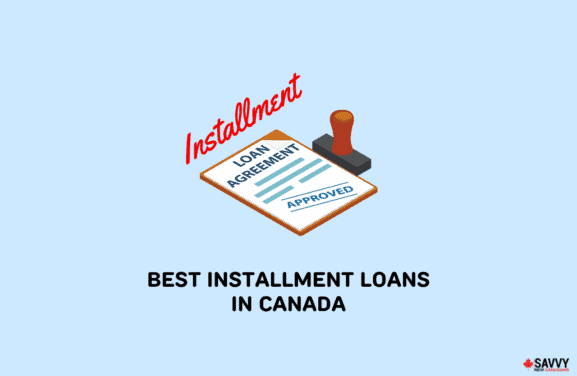Key Takeaways
- You can overcome the challenges of agricultural and agri-food businesses by applying for grants or government-guaranteed loans like the Canadian Agricultural Loans Act (CALA), Advance Payments Program (APP), and AgriInvest.
- The best farm grants in Canada include the Canadian Food Innovation Network (CFIN), Sustainable Canadian Agricultural Partnership (SCAP), Canada Job Grant (CJG), and CanExport SMEs.
- Most grants target research and innovation, so to show your work is life-altering, develop a clear mission, vision, and purpose that align with the funder’s goals and values.
Canadian agricultural businesses can access several farm loans and grants for start-up capital, innovative farming techniques, workforce development, offsetting land costs, or marketing their products.
These targeted funds from provincial and federal governments aim to foster business growth and diversification. Depending on the funding program and your business plan, you may get thousands to millions of dollars.
How Farm Loans Work
Like any other loan, the agricultural credit you get depends on your experience, business plan, and credit score, among other factors. Usually, lenders and commercial banks require property as collateral against their loans, which presents a challenge for new farmers who’ve probably leased their farms and are looking to buy new equipment.
The good news is that the government steps in to help agricultural businesses land loans, get longer loan terms, get lower interest, and other subsidies to help you turn a profit. For instance, with loans like the Canadian Agricultural Loans Act (CALA) Program, the government acts as your guarantor.
Keep in mind that different loans work differently, and some are meant for particular purposes only. Also, the amount you receive, the interest rates, and the loan terms vary from program to program.
For example, if you qualify for the Advance Payments Program (a federal loan program), you get a loan based on the value of the eligible agricultural produce on your farm or in storage. You may get up to 50% of the anticipated market value and may be eligible for up to $1,000,000 at any one time.
Additionally, the government pays the interest on your behalf on the interest-free portion (currently the first $250,000) of the APP; then you pay the rest.
Who Can Get a Farm Loan or Grant in Canada
Most established or prospective agricultural businesses can get a loan or grant in Canada. There are many types of grants and loans covering a wide range of farming businesses. They include agricultural funds for innovation, food safety, water management, workforce management, and equipment upgrades.
Each loan or grant has a unique application process, eligibility criteria, and cost-sharing process. In the case of cost sharing, some programs may fund part of the project cost, with you funding the rest. Here, you must demonstrate your ability to make up for the difference.
So, before you apply for a loan or grant, understand what it covers and the criteria they’ll use. Also, ensure you meet all the requirements in the application, and if in doubt, contact the lender, bank, or grant coordinator.
FCC Young Farmer Loan
Farm Credit Canada (FCC), formerly Farm Credit Corporation, is the largest agricultural lender in Canada. The FCC Young Farmer Loan aims to help young farmers by giving them agriculture, agribusiness, and food and beverage loans.
If you are over 18 and believe you have a viable agricultural business plan, you can apply for FCC’s Starter Loan. There’s no processing fee or downpayment for this loan, and you could get up to $150,000 depending on your business plan or revenue (if you already own a business).
On the other hand, if you’re an experienced agricultural entrepreneur under 40, you could qualify for up to $1,500,000. You can use the loan to buy or improve a farm, buy farm-related equipment, or even buy shares in agri-related businesses.
Related: Business Loans in Canada
The Canadian Agricultural Loans Act Program Explained
As mentioned, most young agricultural entrepreneurs may be locked out by lenders offering secured loans only — especially those that need land as collateral. That’s where the Canadian Agricultural Loans Act (CALA) Program comes in.
CALA is a loan guarantee program that helps agricultural businesses land loans from traditional lenders by acting as the guarantor. This program can guarantee up to 95% of any issued loan, and a borrower can get up to $500,000 to buy land or improve it.
Also, you may get up to $350,000 for other loan purposes, such as refinancing, while agricultural co-operatives can get a maximum of $3 million if the Minister approves.
You may qualify for the CALA loan whether you are an individual, a partnership, or a cooperative. If you are a start-up, the lender will assess your business plan to determine its viability. At the same time, established farmers or co-operatives may be required to present a copy of their farm financial statements, income tax forms, or other evidence to prove that they are farming in Canada.
Remember, you cannot apply directly to the CALA program. You apply through banks, credit unions, and caisses populaires, and then the lenders register the loan(s) through the CALA online registration platform.
Farm Grants for Beginning Farmers in Canada
Canadian Food Innovation Network
The Canadian Food Innovation Network (CFIN) offers two types of funding to support innovation and research in the food and beverage industry: the Innovation Booster and the Food Innovation Challenge.
For the Food Innovation Challenge, the overall project costs should be between $1 million and $4 million, and CFIN can match up to 50% of your project costs ($500,000 to $2 million). For the Innovation Booster, CFIN will also match up to 50% for innovation projects ranging from $20,000 to $200,000 ($10,000 to $100,000).
You are eligible for the funds if you have a small to medium Canadian enterprise, you can demonstrate that your project can be completed within 12 months, and your proposal targets food industry challenges,
Remember, CFIN doesn’t offer advance funding. After approval, you submit quarterly claims with invoices and proof of payments for review, and if approved, they will reimburse you in 10-16 weeks. So, you must demonstrate your ability to match the remaining balance and sustain your project while waiting for CFIN reimbursement.
Sustainable Canadian Agricultural Partnership
The Sustainable Canadian Agricultural Partnership (SCAP) is a new $3.5 billion program funded by the Canadian, provincial, and territorial governments. It’s a five-year program that will run until 2028, aiming to foster innovation, resilience, and competitiveness.
The amount an applicant receives will depend on their province, the type of project, and the applicant type. You can visit your province or territory’s official website for more information about the amount you can get and your eligibility.
CanExport SMEs Program
If you have an agricultural business that you plan to expand outside Canada, you can get a grant from CanExport. CanExport aims to develop opportunities for any industry in new international markets, and since 2019, they’ve been offering funds for the agriculture and agri-food industries.
You can get up to $50,000 to bolster your export marketing projects. However, they don’t offer grants for a company that’s been operational for one year or less, even if they meet other requirements.
To qualify for CanExport SMEs, you must have
- a Canadian-registered company,
- a CRA business number,
- Fewer than 500 full-time equivalent employees,
- $100,000 to $1 million in annual revenue declared in Canada.
Remember, since CanExport gets hundreds of applicants, they operate on a first-come, first-serve basis, and once the program’s funds are fully allocated, the application process is closed.
Getting a Farm Grant: Mindset and Timing
Most grants focus on research and innovation, which may seem irrelevant to farming. But if you’re creative, you can find ways to make innovations in the agriculture industry. For example, if you’re fencing your farm, you can find ways to protect sensitive ecosystems and become eligible for grants aimed at environmental conservation.
Also, plan ahead and research your project costs, needs, scope, and benefits for the environment or economy. Most agricultural grants come during the spring, which may not be ideal for busy farmers, but it will be easier if you have everything on file.
Pros and Cons of Farm Loans in Canada
The main advantage of farm loans is they offer immediate capital to buy or lease land, buy farm equipment, improve constructions on existing land, or improve their crops. They allow farmers to increase their production or expand operations without waiting for profit from their businesses.
Farmers can also get loans with lower interest, especially if they own the land. New and established agricultural businesses also have an advantage that comes from government guarantees like CALA associated with the loans.
Lastly, a wide variety of agricultural loans cover several parts of farming, for instance, buying equipment, land, refinancing, crop improvement, and more.
On the other hand, the main disadvantage of agricultural loans is the unpredictable nature of farming. Most loans go to default due to the complexity of farming, inadequate resources and knowledge, and lack of necessary equipment.
Also, loans may have serious implications if you miss payments or have unfavourable outcomes. So, it’s always important to weigh the pros and cons and decide if an agricultural loan is right for you.
FAQs For Farm Loans and Grants in Canada
In 2011, the average debt per farm was $412,269, and in 2015 it increased to $603,759. Since then, the total outstanding farm debt has been trending upward in the last decade.
There are several banks that offer the best agricultural loans, especially with the Canadian Agricultural Loan Act (CALA) program. They include the RBC Royal Bank, Canadian Imperial Bank of Commerce, and Scotiabank.
If you have a viable business plan and you’re over 18, you can qualify for FCC’s Starter Loan. This loan can give you up to $150,000 for your start-up or established agricultural business.
Canadian agricultural and agri-food businesses are subject to provincial and federal taxes. Remember that tax rates, deductions, and exemptions vary from province to province.
Related:






